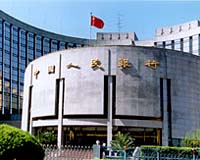| . |  |
. |
College Park, Md. (UPI) Jun 3, 2010 Economists expect a strong U.S. jobs report for May but the unemployment rate is expected to ease only slightly. Friday, the U.S. Labor Department will release May employment data and forecasters expect something north of 500,000 new jobs. However, many are in the public sector reflecting stimulus spending. Manufacturing is expected to add a respectable 30,000 new positions. Unemployment is expected to only fall to 9.8 percent from 9.9 percent in April because many sidelined adults, sensing improved conditions, started looking for work. The big challenge is to keep gross domestic product growing at least 3 percent to pull down unemployment. Much recent growth has been inventory adjustments and sustainable growth, reflected in real consumer and business investment demand, has been only about 2 percent. As stimulus spending tails off, new sources of demand will be needed. If the economy keeps growing at 3 percent the balance of 2010, demand for new capacity -- improved rental housing, better located new homes and commercial construction for retail and factory improvements -- should accelerate in 2011. Auto sales, currently a bit more than 11 million a year, should move up to 12 million plus with noticeable multiplier effects in the Midwest and Upland South. Fiscal problems in Greece, Spain and elsewhere in Europe and dallying by European leaders in addressing fiscal imbalances and problems at banks pose genuine threats to global recovery. Obama administration and Federal Reserve support of the International Monetary Fund contribution and dollar currency swaps were sound responses. European leaders resisting genuine bank stress tests and transparency about bank capital requirements and blaming short-selling and Anglo-Saxon capitalism for problems created by their own hands, reinforce the growing judgment of financial markets that European leaders are incapable of accomplishing adequate systemic reforms to rehabilitate their economies. Europe seems forever mired in adolescent denial and alibis -- a malignant European character flaw. On this side of the pond, greater realism is needed about U.S. budget challenges as the recovery continues or America will join Europe down the proverbial drain of financial self abuse. Near term, demand must be fired up to significantly dent unemployment. The economy must add more than 13 million mostly private sector jobs to bring unemployment down to 6 percent by the end of 2013. Businesses need customers and capital to invest in new facilities and jobs and private demand growing at less than 2 percent and troubles at regional banks remain huge problems. The trade deficit -- in particular, huge imports of oil and the imbalance with China -- cuts a wide hole in demand for U.S. goods and services. Without addressing oil and China, creating enough new jobs is daunting. Detroit has the technology to produce much more efficient vehicles now and a shift in national policy to rapidly build these would push out imported oil and create many new jobs. China maintains an undervalued currency that makes its products artificially cheap and deceivingly competitive on U.S. store shelves and it practices virulent protectionism against U.S. exports. China won't respond to diplomacy and reason. U.S. President Barack Obama and Treasury Secretary Timothy Geithner should quit the hand-wringing and implement comprehensive policies to counter Chinese abuse of free trade. That would begin with a tax on dollar-yuan conversions that would raise the price of Chinese imports to their true cost to the U.S. economy. Regional banks, which serve small and medium-sized businesses, remain burdened by failing commercial real estate loans and mortgage-backed securities. The Troubled Asset Relief Program was intended to remove many of those loans from their books but has often been abused by policymakers to aid political constituents on Wall Street and Detroit. A Savings and Loan Crisis-era Resolution Trust could relieve regional banks of troubled loans, earn a profit for the government, and give small and medium-sized businesses adequate bank credit again. (Peter Morici is a professor at the Smith School of Business, University of Maryland, and former chief economist at the U.S. International Trade Commission.) (United Press International's "Outside View" commentaries are written by outside contributors who specialize in a variety of important issues. The views expressed do not necessarily reflect those of United Press International. In the interests of creating an open forum, original submissions are invited.)
Share This Article With Planet Earth
Related Links The Economy
 China bank adviser says property woes more severe than US
China bank adviser says property woes more severe than USBeijing (AFP) June 1, 2010 China's housing market problems are worse than those in the United States before the global downturn as they could stoke public discontent, a central bank adviser has warned. The comments were made before China's State Council, or cabinet, announced it would "gradually reform the real estate tax" - the first official sign of a possible annual levy on residential housing aimed at reining in ... read more |
|
| The content herein, unless otherwise known to be public domain, are Copyright 1995-2010 - SpaceDaily. AFP and UPI Wire Stories are copyright Agence France-Presse and United Press International. ESA Portal Reports are copyright European Space Agency. All NASA sourced material is public domain. Additional copyrights may apply in whole or part to other bona fide parties. Advertising does not imply endorsement,agreement or approval of any opinions, statements or information provided by SpaceDaily on any Web page published or hosted by SpaceDaily. Privacy Statement |